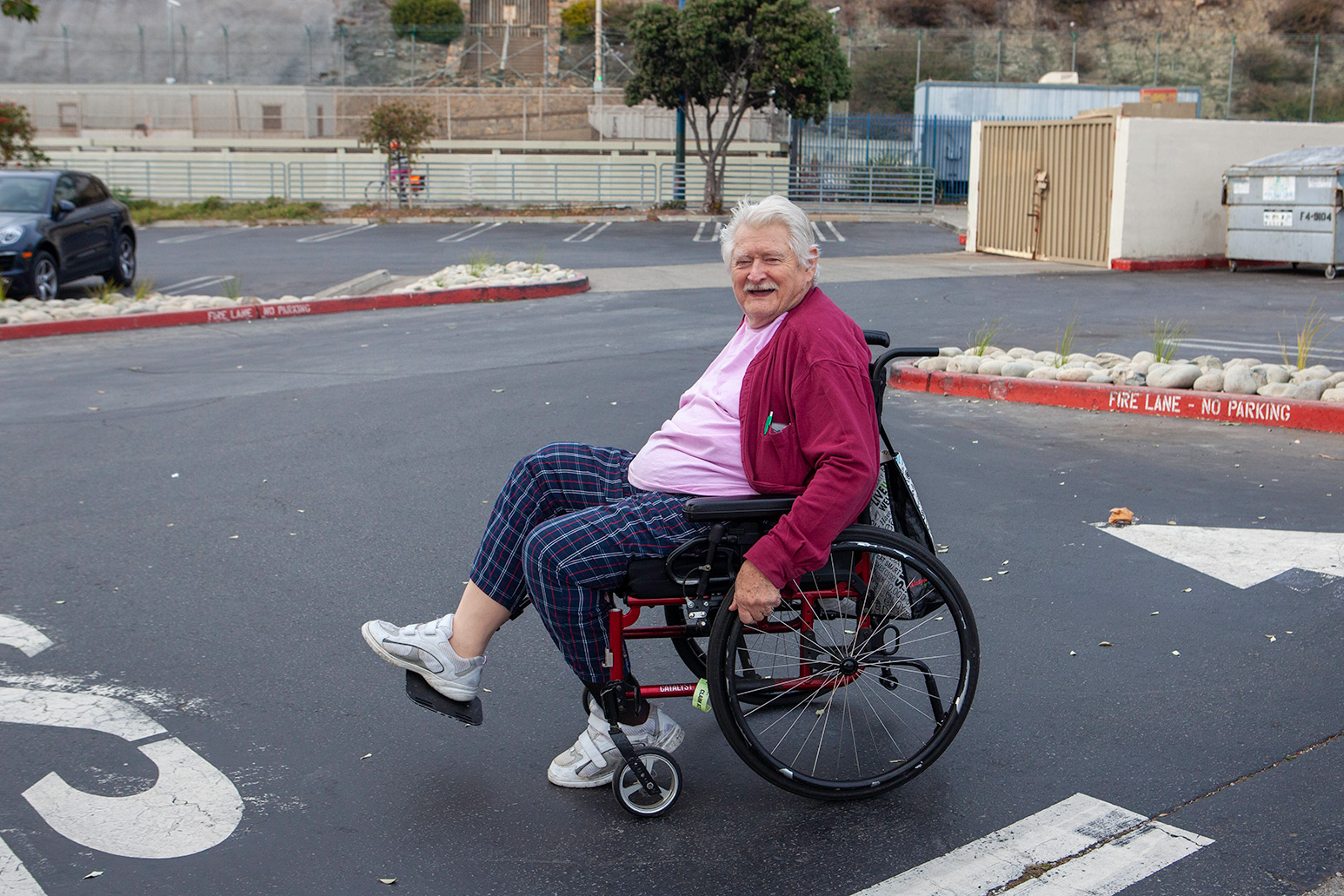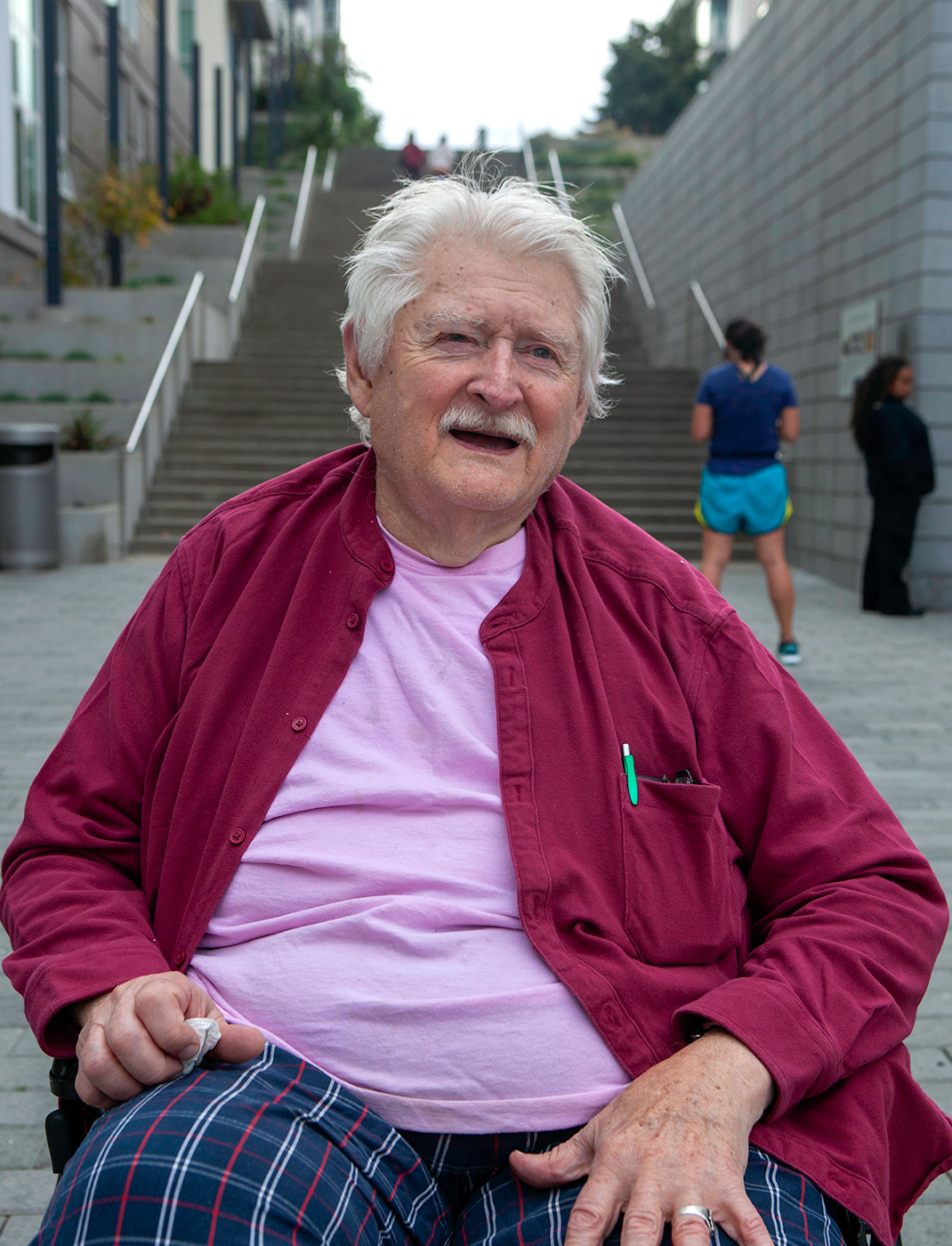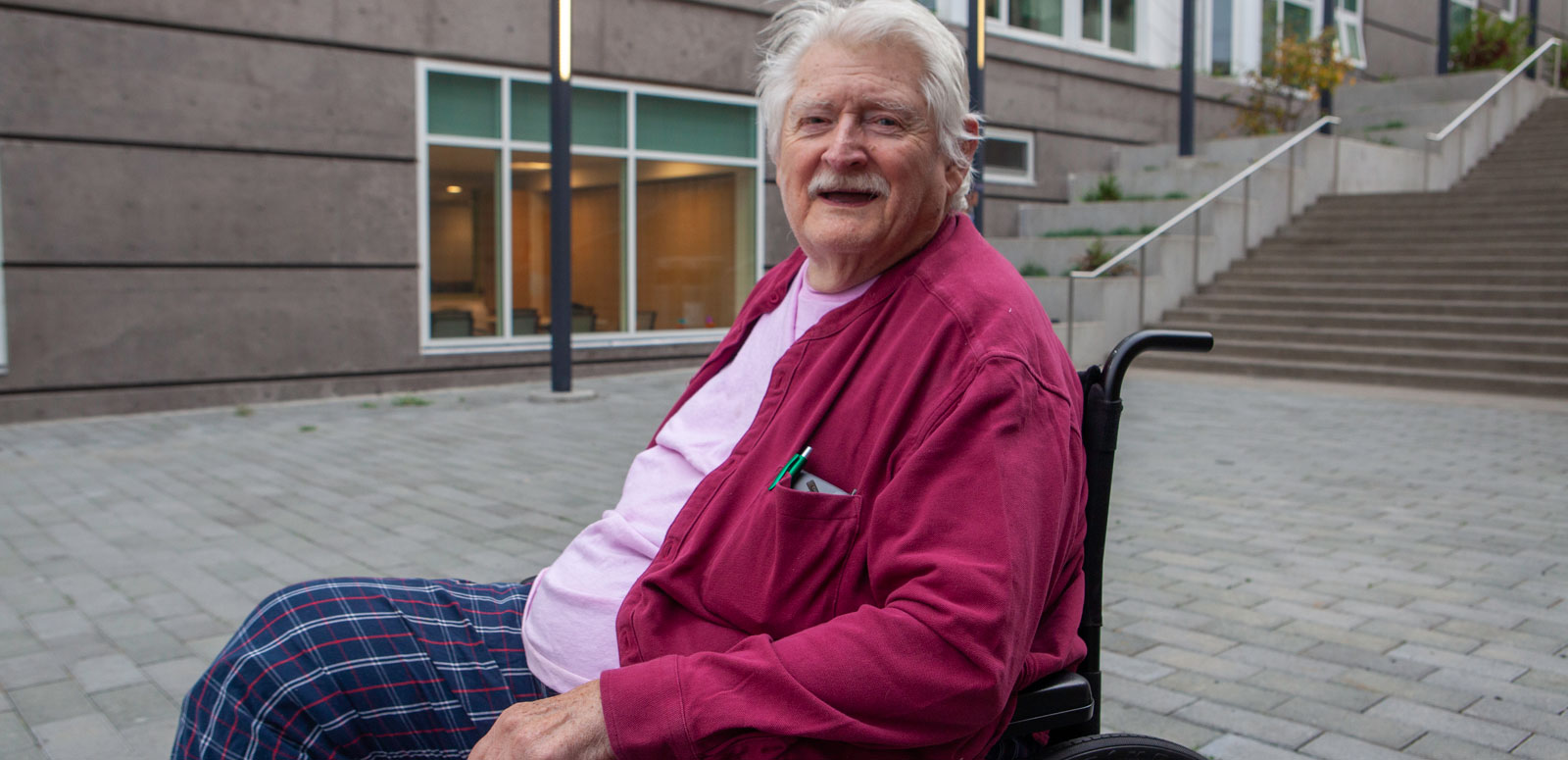You can help someone for so long – and walk alongside them – but they’ve gotta pick themselves up…
Fred Townsend went off to fight in the Vietnam War at 22, a young man from New Mexico who had a burning desire to see the world. He finished his service in the Navy, after five and a half years of duty. He decided to settle in San Francisco in 1966, after having seen much of the California coast during his time in the army on service ships.
Since, he’s worked a number of jobs from a “men’s haberdashery – one of the finest in the world!” to bartending to hotels and tourism. After some years of fundraising in the nonprofit sector, he retired.
“I didn’t have a plan for getting older,” he said. “I was 22…back then you had the draft – be drafted or enlist.” After that, “my plan for becoming an older person was – no plan! I felt I had a very nice job, and I had an apartment I could afford…I worked until I couldn’t anymore.”

He’s joined a number of intergenerational programs to work with youth, specifically LGBT youth. The army back then, he noted, could “kick you out for looking at someone the ‘wrong’ way” back then. While he believes times for LGBT servicemen and women in the military have improved, he knows it’s still an imperfect system and a challenge for youth in similar shoes looking to serve in the military.
Currently an advisor and participant with San Francisco’s Shanti Project, a nonprofit that “builds human connections to reduce isolation and improve quality of life,” Fred hopes that over the next fifteen years he is able to maintain his health and become “an inspiration to people” he meets along the way. He lost a leg five years ago and is still recovering from the loss. Being in a wheelchair, however, cannot stop him. He is also active in Shanti’s LGBTQ Aging and Abilities Support Network, which “addresses social isolation as well as emotional, behavioral, and health challenges faced by lesbian, gay, bisexual, transgender, queer seniors and adults with disabilities.”
“If you can make one or two people happy, that’s a good thing.”
Fred worked with Harvey Milk in the Castro district during a time when “people couldn’t even pronounce the words ‘kaposi sarcoma’ (a symptom of the AIDS virus) so they just called it chaos,” he recalls. That era shaped him and his current mantra of “unity” with younger generations – “each one, reach one” he believes.
He is still participating and making inroads to educate and support other LGBTQ community members and people from younger generations. He shared, “I’ve enjoyed my life. I’ve done what I wanted to do. My family…my oldest sister…they’ve passed, they just didn’t get out and see the world like I did,” he said.
In the next ten years, he offers, he’d still like to be continuing to work with community members and create opportunity for learning and growth. “If you can make one or two people happy, that’s a good thing.”
Mission accomplished.

All photos courtesy of: Sahara Marina Borja
